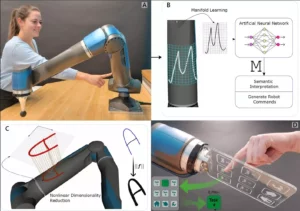The intersection of luxury and technology has long been a battleground for brands seeking to elevate the mundane to the magnificent. The recent introduction of Montblanc’s Digital Paper tablet exemplifies this paradigm shift. No longer is digital convenience confined to utilitarian gadgets; it is morphing into an extension of personal style and status. Montblanc, a
In an era where technology companies wield unprecedented influence over our lives, declaring Google a monopoly isn’t just a legal victory; it’s a decisive step towards restoring competition and fairness in digital markets. For decades, big tech firms have consolidated their power, often cloaking their dominance under the guise of innovation and efficiency. Yet, beneath
The unveiling of Meta’s new Ray-Ban Display glasses signals a bold leap toward transforming everyday wearable technology into a truly integrated digital experience. Unlike traditional smart glasses that merely act as secondary screens, Meta’s innovation lies in its attempt to embed a minimal yet functional display directly into a pair of stylish, consumer-friendly frames. This
The prospect of housing data centers in orbit often sparks skepticism rooted in practicality. Conventional wisdom suggests that space-based infrastructure struggles with significant technical hurdles, notably slower data processing speeds and maintenance difficulties. Unlike terrestrial centers nestled in climate-controlled environments with ready access to power and human expertise, orbiting data hubs would be subjected to
In a landscape dominated by outdated, cumbersome solutions, Navan emerges as a beacon of innovation, challenging established giants with its audacious vision. The company’s decision to go public signals a strong belief that the market is ripe for disruption. For years, corporate travel and expense management have suffered from the inertia of legacy systems—fragmented processes,
In recent years, technological giants like Meta have positioned themselves at the forefront of artificial intelligence progress, aiming to craft smarter, more human-like models that promise to revolutionize everyday life. Yet, their pursuit of innovation often seems to sideline fundamental ethical considerations, especially concerning intellectual property rights and proprietary content. The lawsuit filed by Strike
The concept of a game set in the icy wilderness of Antarctica, populated solely by penguins, might seem trivial at first glance. Yet, Penguin Colony challenges conventional expectations by transforming this seemingly mundane setting into a surreal, Lovecraftian odyssey. The creators behind this title do not merely settle for a cookie-cutter exploration game; instead, they
In an era where artificial intelligence increasingly acts on our behalf, the promise of efficiency often masks underlying vulnerabilities that can be exploited with alarming ease. The recent security incident involving OpenAI’s AI agents illustrates how the very tools designed to streamline our digital lives can transform into vectors for covert attacks. This episode exposes
Meta’s recent announcement of its Wearables Device Access Toolkit signifies a pivotal moment in its technological evolution. Moving away from merely producing hardware, the company now envisions a future where third-party developers are integral to shaping the capabilities and appeal of its AI glasses. This strategic pivot reveals a clear understanding: an open ecosystem, fueled
LinkedIn’s recent move to expand data sharing with Microsoft marks a pivotal moment in the ongoing battle between user privacy and corporate benefit. While many users might brush off this change as standard procedure, it reflects a broader trend of leveraging professional data for algorithms designed to monetize user engagement. The platform promises that only













